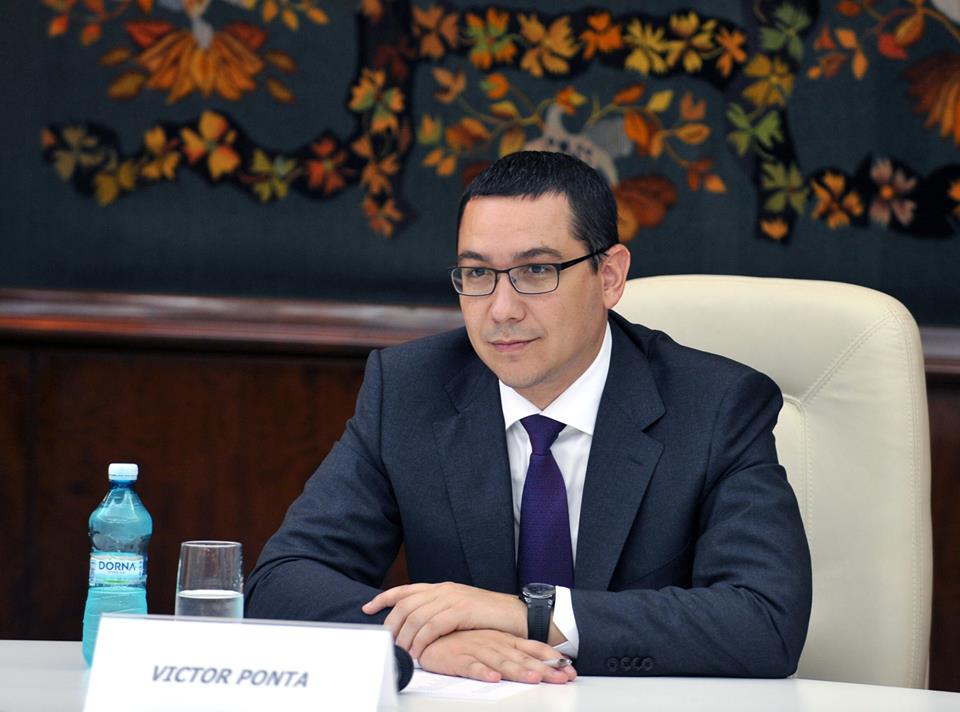When a country’s prime minister is targeted in a corruption inquiry, you’d expect him to protest vigorously, using every political and governmental lever to bolster his support.![]()
Faced with his own troubles and an investigation by Romania’s National Anti-Corruption Directorate (known by its Romanian acronym DNA), prime minister Victor Ponta has apparently done the opposite — citing the need for recovery from a knee surgery, Romania’s prime minister notified the country that he would be stepping down on an interim basis of up to 45 days. For now, deputy prime minister Gabriel Oprea is now the acting prime minister while Ponta remains in Istanbul recuperating.
It’s an odd decision, though, and Ponta’s decision to leave the country within days of corruption charges could embolden his political enemies, though his center-left Partidul Social Democrat (PSD, Social Democratic Party) and its allies have a strong majority in Romania’s parliament.
The National Anti-Corruption Directorate alleges that while working as a lawyer in 2007, Ponta (pictured above) received €40,000 for legal work that he didn’t perform from another attorney — who Ponta later appointed to his cabinet. For now, Ponta’s parliamentary majority refuses to lift his immunity, and his allies are even threatening to weaken the anti-graft laws under which the DNA has stepped up its scrutiny of the entirety of Romania’s political elite. The country consistently ranks among the most corrupt countries in the European Union alongside Bulgaria, both of which joined the European Union in 2007. Romania’s president Klaus Iohannis, a political rival who faced off against Ponta in last year’s presidential election, has already called on Ponta to step down. That’s unlikely — and fresh parliamentary elections in Romania aren’t due until 2016.
The chief prosecutor of the DNA, Laura Codruța Kövesi, has empowered the role of an institution that was founded only in 2002 — under her watch, the office won a conviction against Adrian Năstase, Romania’s prime minister between 2000 and 2004, on corruption charges, among many others.
Nevertheless, it’s odd that Ponta essentially sneaked out of the country for knee surgery on June 14, and it’s odd that Ponta sought to relinquish control as prime minister. It comes even as one of Ponta’s allies, Sebastian Ghita, was indicted this week for influence peddling, tax evasion, money laundering and electoral fraud — he’s accused of trying to bribe voters with frying pans in the PSD’s landslide election victory in 2012 and coaxing Moldovan citizens to apply for Romanian citizenship to support the PSD. Oprea, a former defense minister, is hardly much better; he’s the leader of a smaller PSD ally, the National Union for the Progress of Romania (UNPR), and he too is dogged by allegations of corruption.
With the popularity of the Romanian right strained after the 2008-09 financial crisis, which required a €20 billion bailout package from the International Monetary Fund, it was no surprise that its government collapsed in May 2012 or that Ponta won a resounding victory later in December 2012.
When he first came to power in May 2012, he immediately draws comparisons to another Viktor — Hungarian prime minister Viktor Orban. Both seemed destined on winning supermajorities to reshape the constitutional structures of their countries. Ponta, for his part, tried to oust the country’s president, Traian Băsescu, through a referendum that only narrowly failed. Early in his tenure, Ponta tried to change the country’s election laws and intervened in the leadership of the supposedly apolitical state media and public television, drawing sharp rebukes from the opposition and from EU officials.
Though Romania’s economy and GDP have grown under Ponta’s watch, his chief ally, the center-right Partidul Național Liberal (PNL, National Liberal Party) left his governing coalition in February 2014. At the time, the PNL’s decision was largely seen as a fight over ministerial positions, not ideological differences.
But Ponta suffered an even more staggering setback in November 2014 when he unexpectedly lost a bid to become the country’s president. Though Ponta led the first round, he lost the runoff to Iohannis, an ethnic German and former mayor of Sibiu, by a nearly 10% margin. When Iohannis won, Băsescu’s center-right party, the Partidul Democrat-Liberal (PDL, Democratic Liberal Party), merged formally into the PNL, and the merged group, newly empowered, holds a narrow lead in many opinion surveys in advance of next year’s elections.
There were signs in late 2014 that Romanian voters, fearing Ponta’s overreach, were also already growing weary of the cloud of corruption surrounding the PSD-led government. Last October brought news of ‘Microsoftgate,’ whereby the government’s top officials were caught pocketing proceeds from fraudulently procured Microsoft licenses.
The growing strength of Iohannis and the rising PNL, coupled with Ponta’s increasing weakness and corruption troubles, have limited the scope of Ponta’s one-time plans. In the past three years, Ponta has responded to political challenges through confrontation. Despite his temporary retreat from the premiership, he may be plotting a constitutional escalation from Istanbul. If so, the next 18 months could feature gridlock in one of the least developed EU member-states — and one that’s still struggling to join the Schengen zone of free movement throughout the European Union.
